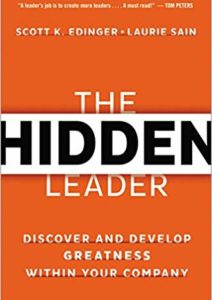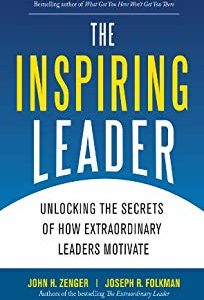To be Head of Sales is my choice for the hardest leadership job. That’s not just because Sales is the source of revenue and tends to feel external friction first, but because sales organizations are all unique and create singular challenges.
Remote and Distributed Teams
Sales teams are frequently spread out over different time zones and different cultures. Not being together in a shared space may present challenges — not least of which is that it makes interactions among members and between staff and leader difficult.
There Are No Universally Accepted Standards
Often, too, there’s no standard educational path or shared body of knowledge for sales professionals. Accounting can call on Generally Accepted Accounting Principles. Manufacturing can look to Six Sigma and other defined processes. But sales pros can draw mostly upon anecdotal experiences of other sales professionals and a lot of business books. Few institutions offer degrees in Sales, and few salespeople have one. They migrate to a sales career from diverse job histories — everything from philosophy to physics, each with its own ways of thinking. That means sales training is part art, part science, and all absorbed while on the job.
The Entrepreneurial Sales Personality
Finally, sales professionals tend to be prima donnas — not necessarily a bad thing (I’m able to say this because I’ve been a salesperson and have spent a lot of time leading sales teams) — but if you’ve worked with sales professionals, you’ll recognize the pattern of their personality traits. They tend to challenge authority, drive hard toward results, and are opinionated on how to achieve those results. Oh, and they’re usually extraverts because many companies hire to that profile, so when you combine these characteristics for an entire team, it can be a handful.
I’ve been fortunate to work with many great sales leaders, and the best of them tend to share a common set of traits and practices. In no particular order, this is what marks them out:
-
They lead with metrics. Everyone knows that the ultimate measures of success in sales are revenue and profit. But though critical, they are lagging indicators. The best sales leaders focus on leading indicators, as well — metrics like “key milestones in a long sales process” and “increases in the value of a pipeline,” stats that predict success or failure while leaving time to adjust. When your interactions with your staff are limited, few things are more powerful than having the right balance of both of these kinds of metrics.
-
They coach and develop talent. Coaching has always been important, but when you’re learning on the job, it’s particularly critical. Sales leaders need to put a premium on developing their team members’ people skills. Gallup research indicates that having the right manager can improve a seller’s performance by 20%. Many sales leaders are promoted because they were great salespeople, and then fail to teach their people the techniques that made them great. The best sales leaders make coaching a top priority. After all, even prima donnas want to improve their craft, be more successful, and earn more.
-
They provide strategic guidance. Competitive strategies always look terrific in a PowerPoint presentation in a boardroom or conference center. But translating them into specific actions and processes for a sales team is harder to do. Sales leaders need to have the talent to show teams how to implement those plans so that the strategy is carried out effectively.
-
They keep the focus on value creation. I’m not talking about the value of the company’s offerings; I’m talking about the value created by sellers in the selling process. Sales leaders must continually draw the focus of their teams away from weak “feature and function” discussions and toward business value. Salespeople today have to be able to help clients define needs, establish success measures, and meet objectives with the company’s products and services. When a sales staff guides customers to see needs they hadn’t considered, helps them understand the impact of those needs, and introduces them to solutions or configurations they were unaware of, the chances for differentiation are far greater — and so is the likelihood that your company will earn the clients’ business.
Leadership is hard in any job — not just sales. But if there are few schools that teach sales, there are even fewer (are there any?) that teach sales leadership — it’s entirely learned on the fly while the top line of the company is resting on your organization.
No pressure.
(This post was originally published on Harvard Business Review.)













